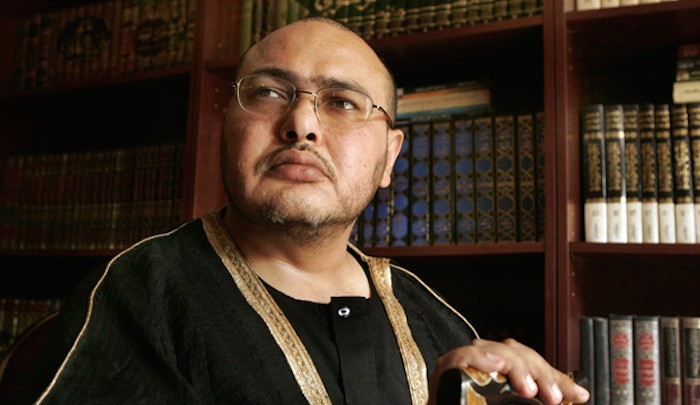Khaled Abu al-Fadl (born 1963 in Kuwait) is one of the largest contemporary Islamic scholars and Islamic scholars. Al-Fadl is Distinguished Professor of Law and Head of the Islamic Studies Program at the University of California at Los Angeles, who wrote hundreds of articles and dozens of books on Sharia, the issue of fiqh reform, the problem of Islam and human rights, and on the situation of women in Islam. In addition, he is quite a lot and is often published in such famous media as The New York Times, The Washington Post, The Wall Street Journal, The Los Angeles Times and The Boston Review.
Abu al-Fadla’s works have been translated into many languages - Arabic, Persian, French, Norwegian, Dutch, Russian, Vietnamese, and Japanese.
Born in Kuwait, Abu al-Fadr combines in his biography the educational and teaching experience of Western countries and the Muslim world. On the one hand, he graduated from universities such as Yale University (B.A.), Princeton (M.A. and Ph.D in Islamic Law), University of Pennsylvania (Ph.D in Law). On the other hand, he has 13 years of experience teaching Islamic jurisprudence, grammar and eloquence in Egypt and Kuwait.
Views
In his theoretical work, Abu al-Fadl focuses on the issue of ijtihad. His works today are especially valuable, as this is an example of the use of contextual ijtihad within secular society. According to Abu al-Fadla, ijtihad “naturally leads Islam” to ethical humanism, as well as to justice and beauty, which help to achieve the will of the Most High. The object of criticism of Abu al-Fadla is what he calls the puritanical view of Islam, in which, in his opinion, there is no sufficient interest in moral issues.
According to al-Fadla, the terrorist attack on New York on September 11, 2001 was a logical continuation of the development of the Puritan view of Islam, which was established in some Muslim countries, as well as among parts of the Islamic community in Europe and America in the 1970s. In contrast to the Puritan view, Abu al-Fadl advocated religious and cultural pluralism, democratic values and the rights of women.
At the end of 2016, al-Fadl issued a fatwa dedicated to the hijab (in the narrow sense - that is, covering the head). She has the following heading: "That it is allowed not to wear the hijab."
As Damir Mukhetdinov noted in his article “The Problem of the Hijab in the Context of the Secular Education System”, in this fatwa al-Fadl analyzes relevant Koranic ayats, as well as hadith and literature on classical fiqh In addition, it takes into account the fact that suspicion of hijabs in Western society has increased, and their wearing can have negative consequences in terms of the general goals of the Shari'a (i.e., harm the spread of the Most High religion). Al-Fadl makes the following conclusion:
«…if the hijab causes women to stand out, and brings unwanted attention to them, and poses the risk of bringing harm to women—and considering that per the social habits and customs of the United States, a woman exposing her hair would not be considered immodest or licentious to any extent—it is permissible for a woman NOT to wear a head-covering in the United States. In my opinion, it is contrary to the purposes of Shariʿah for a woman to expose herself to harm of any kind simply for the purposes of covering her hair. Indeed, it is far more consistent with the purposes of Shariʿah for a woman to place more emphasis on educating her fellow citizens about Islam and Muslims instead of focusing on her physical appearance...»
According to Abu al-Fadla, the “golden age of Islam” was characterized by a multitude of traditions. In addition, the golden time is characterized by the fact that in Islamic society, the very desire for knowledge was a manifestation of the worship of the Almighty. Today, according to Abu al-Fadl, most Muslim thinkers have lost their self-criticism and insight, replacing them with a fantastic level of self-confidence and arrogance. For this reason, in their work, this Arab-American Muslim scholar seeks to educate a new generation of reflective Islamic intellectuals.
